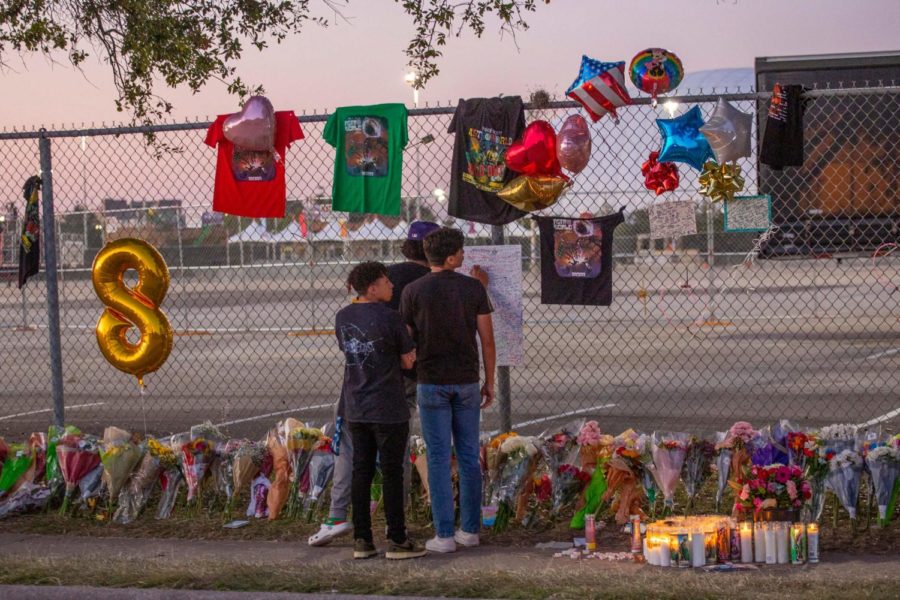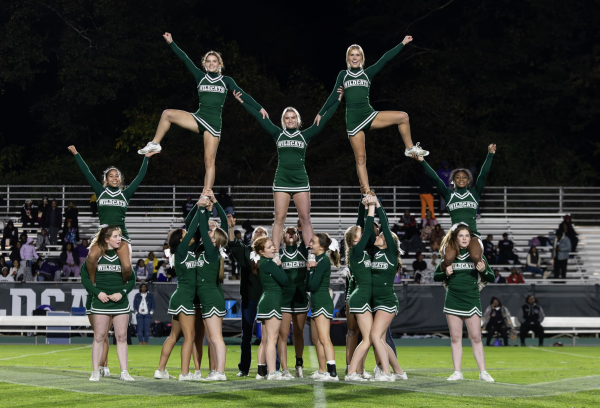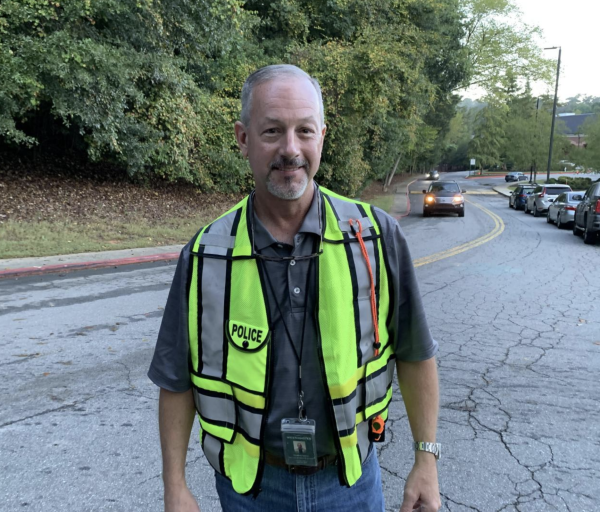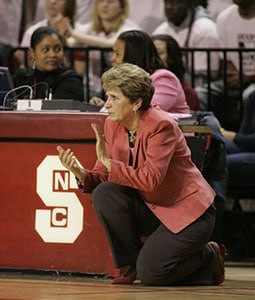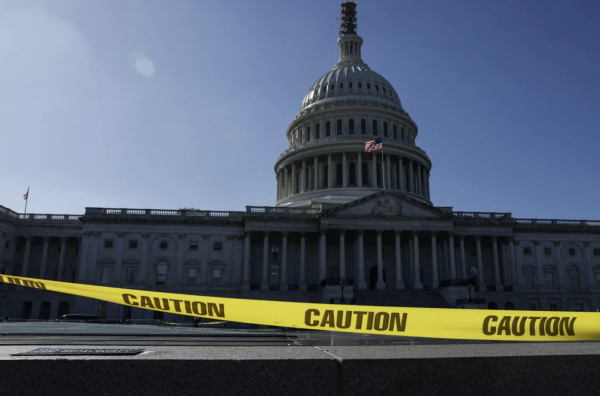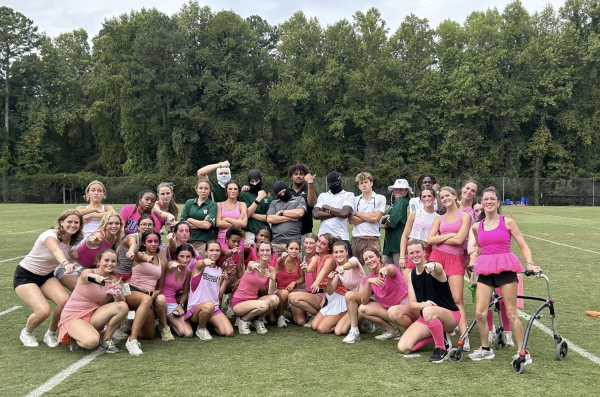At least ten dead after Travis Scott’s Astroworld Festival
On Nov. 5, crowds surged at Travis Scott’s Astroworld Festival in Houston, Texas, leaving at least ten dead and hundreds injured. The ages of those who died at the concert ranged from 14 to 27 years old, and the tenth victim, who was placed in a medically induced coma, was just nine years old. Houston officials are still looking into the details that caused the tragedies that unfolded over the 70 minutes Scott performed, but many have pointed to overcrowding, lack of security, and potential drug use.
Around 50,000 people attended the show, but officials were unable to get a clear count on attendance as hundreds broke through barriers around the venue. This unexpected increase in attendance overwhelmed security and medical staff who were unable to care for hundreds of fans who became sick or required medical attention. Just 10 minutes after the start of the concert, Scott stopped the show for the first time, telling the crowd, “Someone passed out here.” Minutes later, the show resumed, only to be briefly interrupted by ambulances making their way through the crowds. Fans continued pressing toward the stage, an action known as “crowd surging,” leaving little to no room for walking, standing, or at times, breathing.
By 9:38 p.m., just 40 minutes after the show began, Houston police declared the concert to be a mass casualty event, provoked by the numerous 911 calls claiming dead bodies to be in the crowd. At 10:12 p.m., Scott concluded the show and left the stage. Scott claims he was unaware of the widespread distress in front of him, but videos have shown fans walking up on stage pleading for officials to stop the show.
“There is someone dead in there,” shouted one fan to a cameraman on stage. “Stop the show. Stop the show.”
Several other chants could be heard throughout Scott’s performance to end the show, but little was done to relieve the chaos. Since the concert, social media has given the public insight into what happened. Kylie Jenner, Scott’s girlfriend, was slammed on social media after filming the crowds with ambulances in the background and leaving the video up for several hours on Instagram. Her video was deemed insensitive to those who attended and lost their lives during the concert. Scott also took to social media to address the events, but many have called his apology insincere and emotionless.
“The apology just didn’t seem that genuine,” said sophomore Andrew Su. “It undermined the severity of the deaths and tragedy that occurred.”
Fans of Scott have continued to defend him for not stopping the show early, while others have filed lawsuits against him and criticized Scott and the production team for not taking action early enough. Debates concerning who is responsible for the tragedies have developed among those engaged in the world of music. Assigning blame still remains difficult to carry out as new information becomes available, but students across Westminster’s campus have expressed their own opinions on Scott’s involvement.
“I think he should be held accountable,” said Hip-Hop Club member senior Ishan Sheth. “He kept on performing when there were people in the crowd telling him to stop. He just kept the set going when people were running on stage and collapsing.”
Other students have voiced their thoughts on Scott’s ability to stop the show or help those in the audience, criticizing event organizers both for allowing fans to break in and for continuing with the performance.
“He’s not solely responsible for the events that occured,” said senior Lucas Rosenberg.
“Think about the hundreds or even thousands of people who are responsible for putting on the
event. He’s not in charge of putting on that event. He’s just a performer.”
Scott apparently did notice at least one person passed out early in the concert, but continued regardless. Additionally, the chants to stop the show were heard throughout the crowd, yet those like Jenner, who was in the VIP section and recorded fans, claimed to have been unaware of the distress. Many defending Scott’s continuation of the performance have also stated that Scott himself did not hold the power to end the concert. Yet in 2015, Scott paused a show after a fan attempted to steal his shoe, demonstrating that he did have the ability to stop the performance.
“While I think there should be some accountability on his part, I feel as though not all the blame should be on him,” said senior Colin Gibney. “Many supervisors and other concert managers could have stopped the show.”
Who is responsible for the tragedy that unfolded at the 2021 Astroworld Concert is still up for debate, but families of victims are grappling with grief nonetheless. On Nov. 30, the family of nine-year-old victim Ezra Blount denied Scott’s offer to pay for their funeral expenses. As lawsuits and eyewitness accounts continue to unfold, we are likely to see discussion on the subject become more prevalent. As of right now, some concertgoers still feel unsafe with the current situation in the music industry.
“I actually had tickets to a concert the next day after [Astroworld] happened, and I sold my pit ticket and bought a seat just thinking about the safety of other people,” said senior Sophia Rackliffe. “It’s always the artist’s and security’s responsibility to take care of these things, and concerts are supposed to be a safe space to enjoy music.”
The impact of Astroworld will be felt on future concerts, as experts anticipate heightened security and increased medical staff at venues. The deaths and injuries have reflected a broader trend of profits over people, and only time will tell how future concert organizers address the growing desire for safety and security at concerts.
